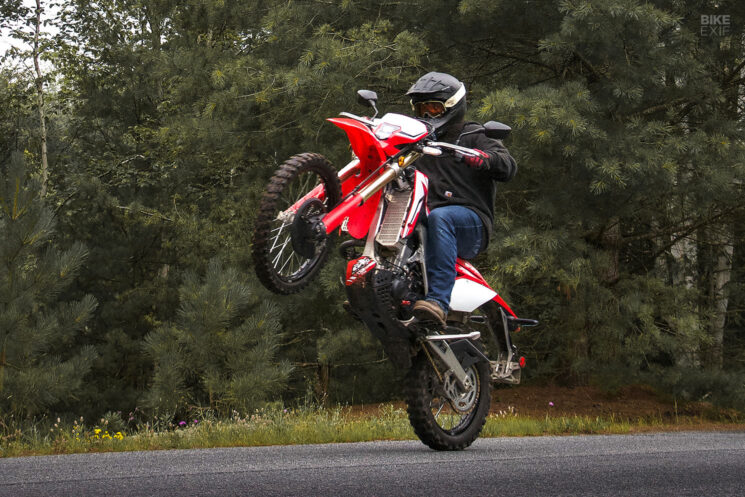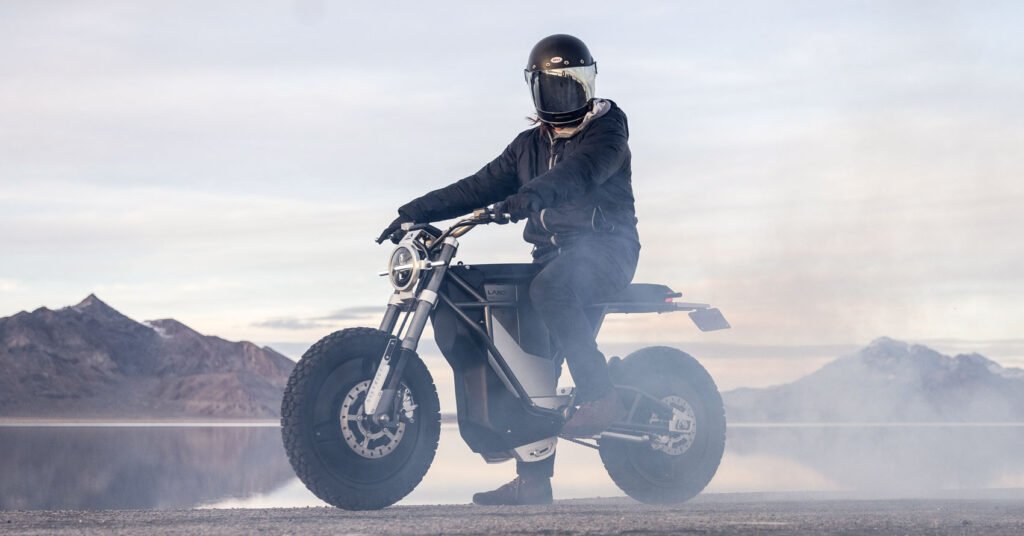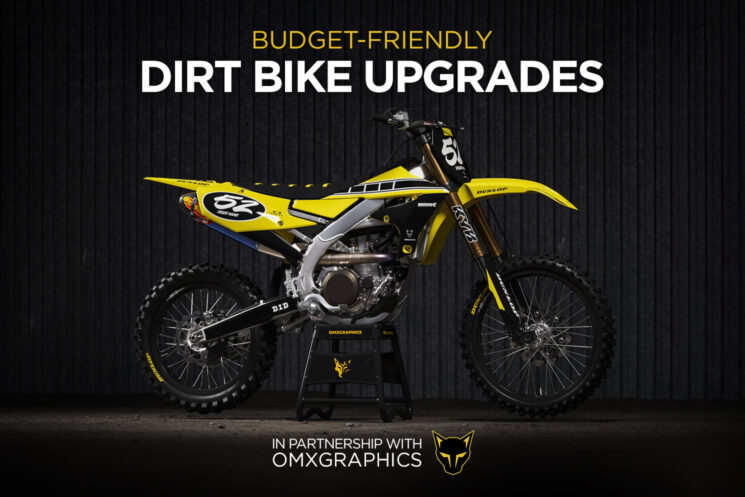
The street-legal dirt bike scene has one of the biggest mod cultures in motorcycling, and if you don’t believe me, it’s been a minute since you’ve been on the forums. You pinched pennies to afford the bike, but now every other owner insists you need a full exhaust, a fuel programmer and your shocks revalved. That will set you back some serious coin, and all too often, owners invest in a full suite of expensive parts and list the bike for sale before the second oil change.
We’re clearly not against mods here at Bike EXIF, but there are plenty of ways to make the most out of your motorcycle without incurring triple-digit credit card statements. Whether you’re looking to prep a stocker for the trails or renew your latest marketplace find, these are some of our favorite budget-friendly dirt bike mods.
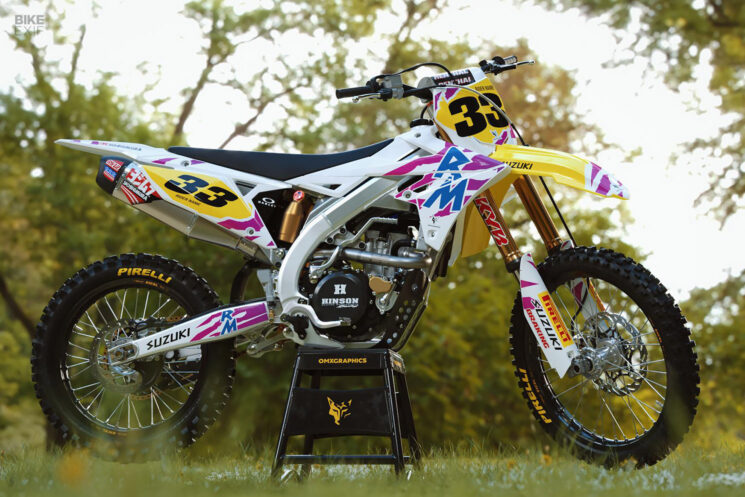
Fresh graphics Dirt bikes are built to be dropped, and if you’ve never had to kick the dirt out of a foot peg and brush off the plastics, you’re not riding it right. Those spills start to show after a while, and stress lines and gouged graphics are hallmarks of a bike that’s been used. Replacing these with OE pieces gets pricey quick, but there’s an affordable option to renew a used bike and add some flare as well.
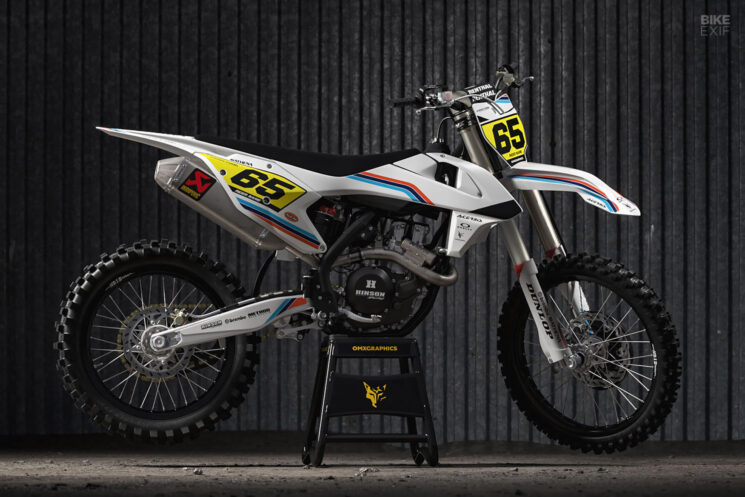
Instead of starting from scratch, consider adding a custom decal set for a fraction of the cost. A reputable dirt bike graphics company like OMXGraphics will have hundreds of designs in stock for your bike, and OMX offers free customization with all of their designs.
Add your name, a number, or sponsors, and they’ll even let you fine-tune the templates yourself with different colors and even striking holographic vinyl. Every design is printed from high-tech, U.S.-based Substance media, and will surely outperform OE graphics.
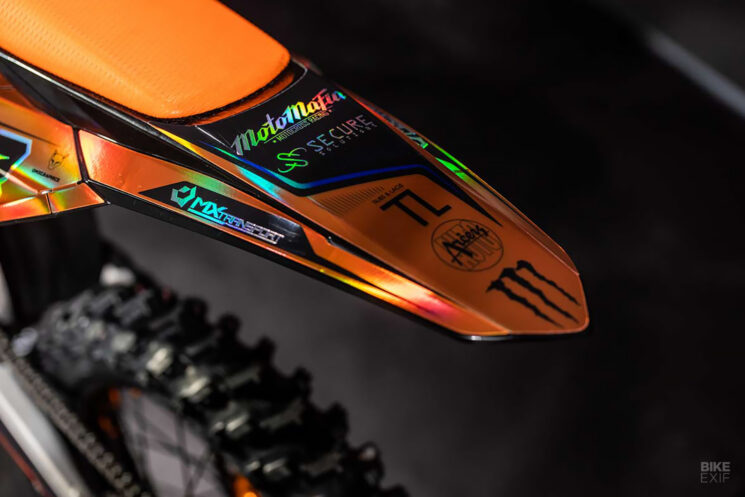
Listing for $179 for a full set, OMXGraphics’ kits are super affordable—and that includes all the customization you want. Installation can be accomplished in less than an hour, and other than a few cans of Maxima SC1, you’d be hard-pressed to transform your bike quicker.
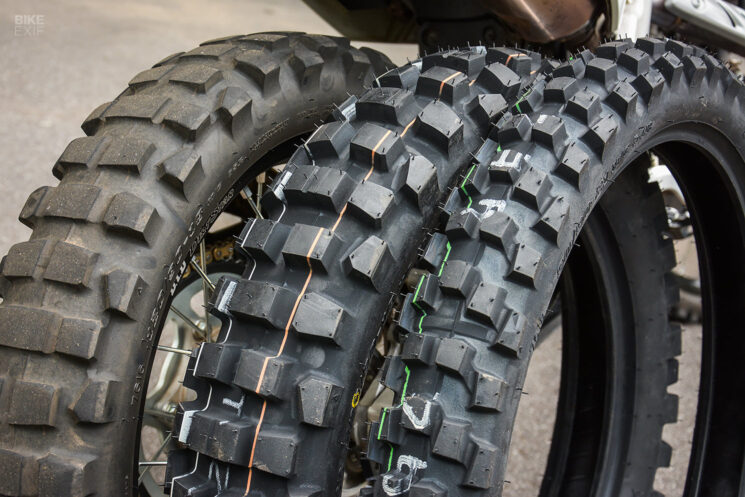
New knobbies Dual-sport tires live a tough life, as they’re expected to be reasonably safe on the pavement while constantly being compared to purpose-built motocross tires off-road. With the nature of their use in mind, expect to find the wear bars sooner than you hoped, and worn-out knobbies are as unsightly as they are unsafe.
Unless you invest in a second set of wheels (and time to swap them), your legal options are limited to DOT-certified tires when your bike’s on the pavement. Always a compromise, dual-sport tires are usually described in terms of their off-road capability versus on-road performance. For example, a 90/10 tire is designed for 90% off-road use and 10% pavement. Since I’d much rather wreck in the dirt, I opt for a tire with more pavement prowess than I may need.
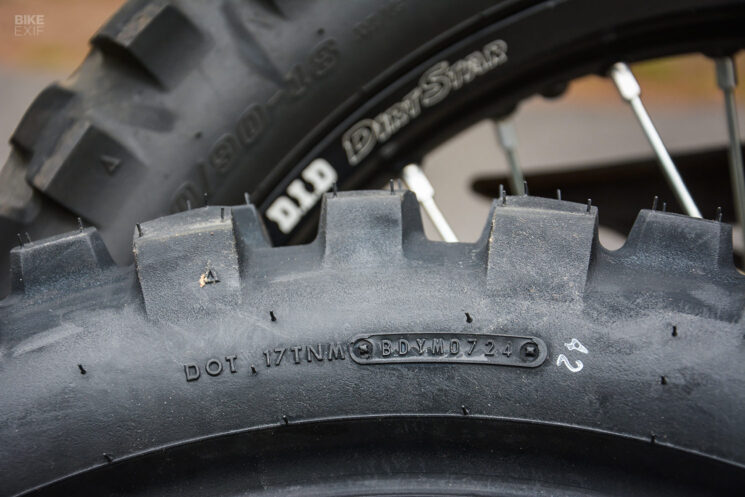
For strictly off-road use, you’ll be in pretty good shape with any intermediate-spec tire for most conditions, and you can take it a step further by paying attention to rubber compounds and lug spacing. In 101 terms, a softer tire will grip rocks and smooth surfaces better, while a harder tire digs better in dirt. Additionally, you’ll want a tire with more space between the lugs if you’re in loose surfaces and sand.
While it requires some elbow grease and curse words, there’s no reason you can’t handle changing tires at home. Depending on the rubber you choose, a tire swap will set you back between $200 and $300, and there are few better investments than where the rubber meets the road—or lack thereof.
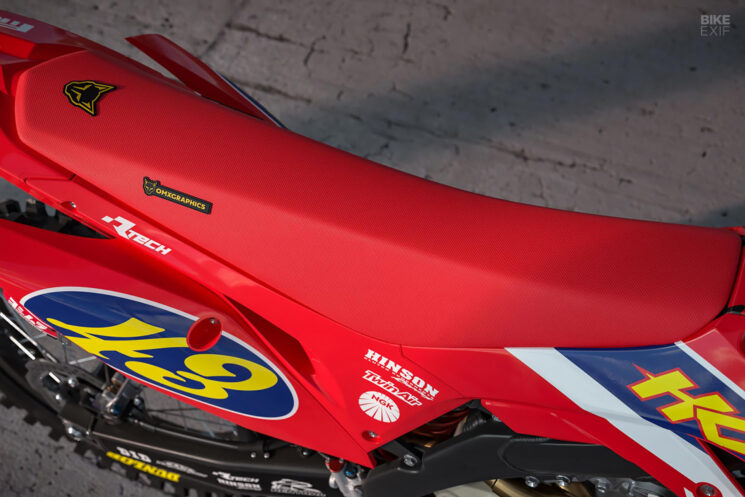
Get a gripper We usually don’t think twice about the seat covers on our dirt bikes unless they’re torn, faded or otherwise unsightly, but if you walk through the pits at any AMA motocross event, you won’t see OEM seat covers. The pros know there’s something to be gained in the saddle, and it could make you faster as well.
The OEs don’t put much effort into their seat covers, and they’re often made from thin material that won’t grip under hard acceleration. Any time you’re sliding back on the seat, you’re using your arms to get back into position, and that contributes to arm pump and slows you down over time. A good seat cover allows you to grip the bike more with your legs and has grip-enhancing features on top to keep your butt planted when you twist the throttle on a corner exit.
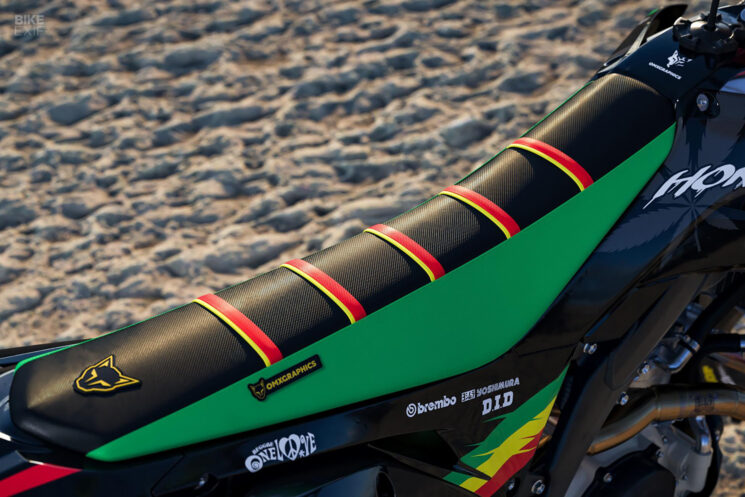
Looking at OMXGraphics’ customizable dirt bike seat covers, you can see the different ways to add grip to your seat. Gripper material on the top and sides of the saddle gives you more to hang on to, and you can add more grip with a full-rib or three-rib design on top. Just figure out the area where you want more grip and go.
They’re made from durable, water-resistant gripper material, and like their graphics, every panel and rib on the seat can be customized to your preference—and that’s included for free. Replacing your dingy old cover with a standard gripper will set you back $55, and the five-rib, full-grip seats go for $75.
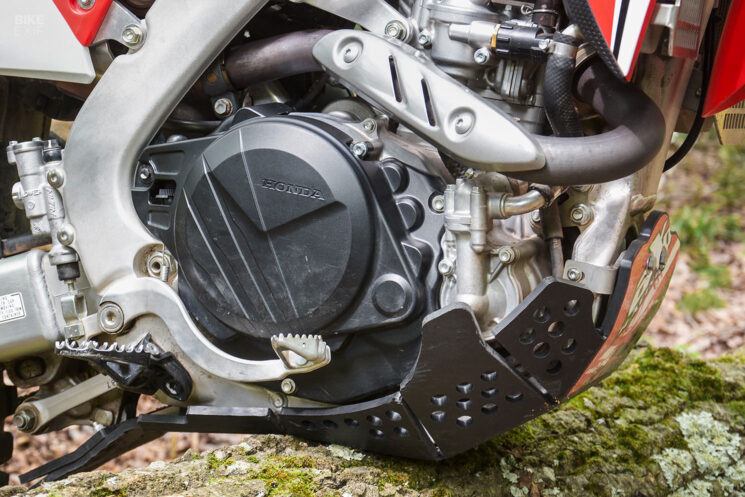
If you love it, protect it Breaking parts will end your day early, so it pays to invest in a little protection for your bike’s most vulnerable bits—usually the engine, radiators and pipe. If you’re anywhere other than the MX track, we consider skid plates and guards a requirement.
Rocks, down trees and other rough terrain put your frame and engine cases in harm’s way, and that’s a bill you don’t want to foot. While your bike is probably equipped with a basic plastic cover on the underside of the engine, don’t mistake it for a proper skid plate.
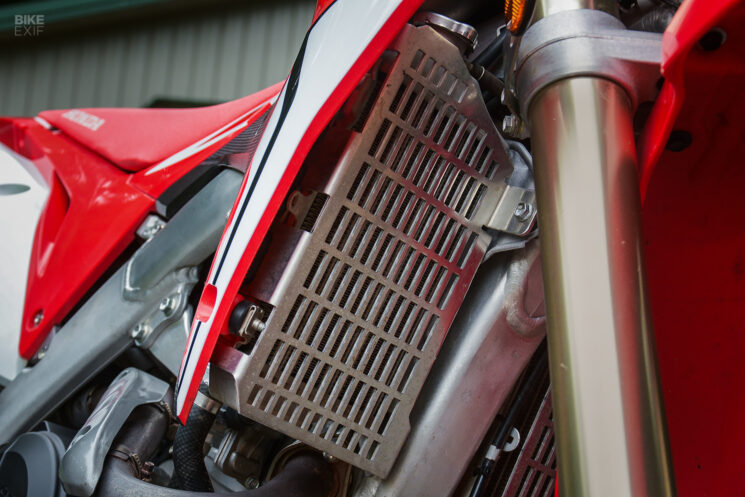
Ditching the OE piece and opting for a full-length skid plate is one of the best investments you can make in the longevity of your trail-ridden bike. Avoid the aluminum ones, as they’re heavy, resonate at speed and can bend mounting points on your frame. We find the polyethylene options to be lighter and better in every way.
With the heart of your motorcycle covered, consider other pricey components like your radiators, as these can be impalled by sticks and rocks, or bend if you drop the bike. Aluminum guards cost half of what a new radiator does in some cases, and they’ll ensure your day doesn’t end with coolant on the ground.
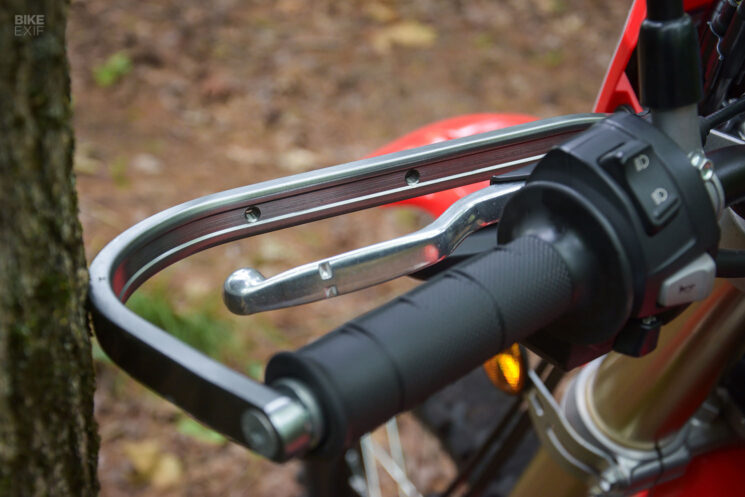
Another must-have for most off-road riders is a set of handguards or bark busters, and a decent set can cost as little as $50. The bare aluminum bars will protect your hands from trees and save your levers if the bike goes down. Add-on plastic shields provide even more protection, and a little visual flare as well.
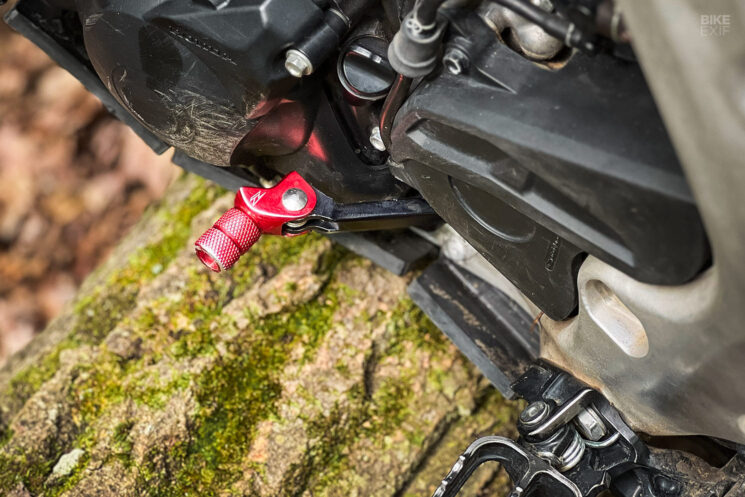
Keep it under control Comfort is the key to building confidence on your bike, and since manufacturers build motorcycles for the masses, fine-tuning bars, levers and foot controls to your preference can make all the difference. This can be as simple as adjusting your lever perches and shifter for easier reach, but if you’ve got a little coin to spend, handlebars are the best bang for your buck.
The first time you dump your bike off-road, you’ll quickly find that OEM and cheap replacement handlebars are your dirt bike’s weak link. They’re often made from steel with a skimpy welded crossbar, bending like a noodle with even a minor drop. There’s also a strong chance the stock bar geometry doesn’t suit your dimensions and riding style, trashing your ergonomics and wearing you out sooner.
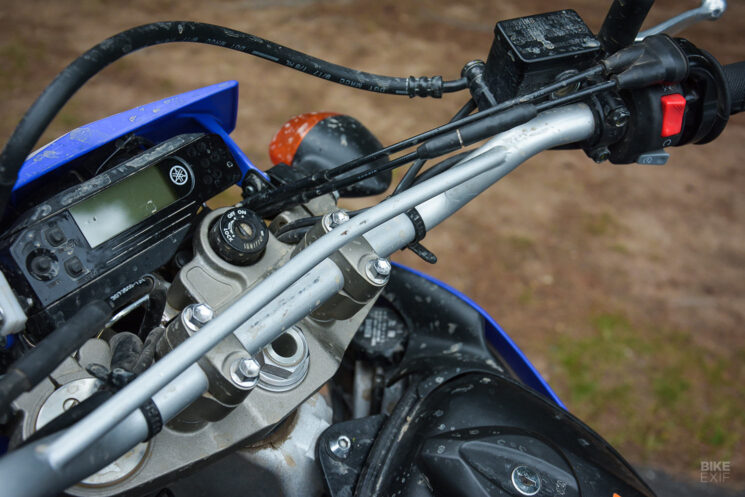
Testing out a friend’s setup can help identify the problem areas, as you might prefer less sweep, or need more rise to suit your body height. Dirt bike handlebars differ a great deal based on rise, sweep, clamp area and width, but armed with these measurements, you’re sure to find a bend you like.
You can spend a fortune on oversized, or vibration-dampening bars (and they’re certainly cool pieces), but name-brand aluminum bars can be had for $50 to $75.
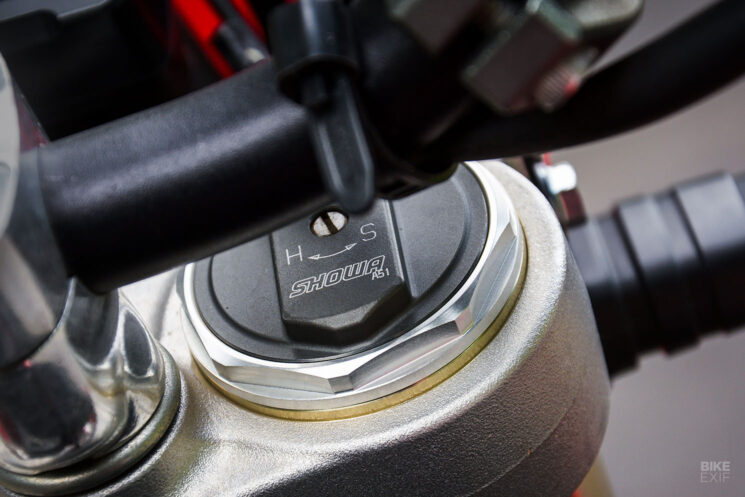
Freebee: Adjust your suspension already It’s probably the biggest improvement you can make to your bike’s handling, and it doesn’t cost a thing. If your bike is fit with adjustable suspension, fiddle around with the clickers to dial in your sag, rebound and compression dampening. Adjustable suspension is meant to be adjusted, and since every rider (and every bike) is different, there’s a ton to gain by making the bike handle right through the whoops and in the air. All it takes is a little trial and error.
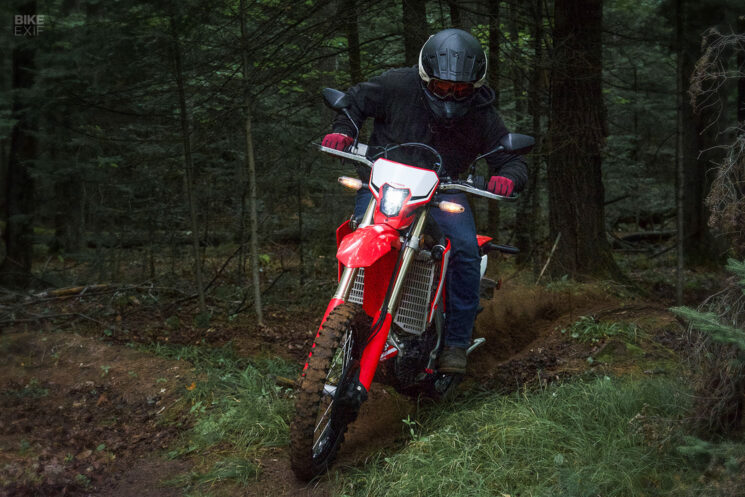
The loose nut behind the bars Your motorcycle is more capable than you’d think right off the factory floor, but there’s no denying that certain components on your street-legal dirt bike are installed with cost and compliance in mind. Addressing these weak links and separating your bike from the pack is a rewarding experience, but not one that needs to break the bank.
You could spend as little as $750 with these budget-friendly dirt bike mods, and that’s without skimping on quality or risking a fix-it ticket on the street. You can’t say the same about that snazzy titanium mega-bomb header and carbon-tipped slip-on you’ve had your eye on, can you?
Our point is that it pays to invest your money wisely and spend more time in the saddle building skills. Because unless you’ve optimized and mastered your current setup, more power probably isn’t the answer.
